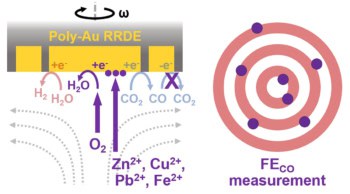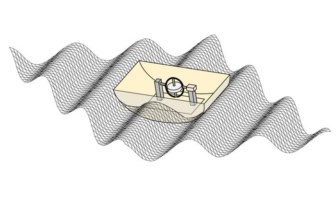E.ON UK is one of the country's leading energy companies. Vicki Booth explains how she is helping to reduce the environmental impact of energy generation to meet the challenges of climate change

When I finished my physics degree at the University of York in 2004, I had no idea what I wanted to do with my career. I had enjoyed my degree and was interested in a career with a scientific bent, but at the same time I wanted to feel like I would be contributing something useful to a company. As I searched through various careers websites I came across E.ON UK, which at the time I had never heard of. I soon discovered that E.ON is the parent company to the electricity and gas supplier Powergen, and that it has its own centre for science and engineering in Nottingham called Power Technology.
After applying via E.ON UK’s graduate recruitment scheme and going through the selection process, I was sure that this was where I wanted to work. I began my 18-month stint as a graduate trainee in September 2004, which was a whirlwind introduction to the company and the power-generation industry in general. I soon realized that power companies do far more than simply maintain the network of electricity cables and ring people to annoy them about their bills.
The carbon challenge
E.ON has its headquarters in Germany and is the world’s largest investor-owned power and gas company. It is the second-largest generator of electricity in the UK and owns the country’s second-largest distribution network. E.ON employs about 15,000 people at over 50 sites in the UK and it took over Powergen in July 2003. In the UK, E.ON runs three large coal-fired power stations, five gas-fired power stations, an oil-fired power station and 14 small-scale combined heat and power plants. E.ON also owns or has a stake in 20 wind farms across the UK and is currently building the country’s largest biomass power station near Lockerbie in Scotland. Moreover, the company is part of a consortium hoping to build the world’s largest wind farm, the London Array, which would sit 20 km from the Kent and Essex coasts in the outer Thames estuary.
I have been fortunate enough to work for the company at an exciting time when the industry is undergoing a lot of change. E.ON’s challenge is to deliver the energy the UK requires at an affordable price while reducing the impact the business has on the environment, and the firm is committed to developing clean-energy technologies. Power Technology is the focus of E.ON’s multimillion research and development programme into low-carbon alternatives for generating power. The centre also supports existing power stations by ensuring that they operate as efficiently as possible.
One of the projects I have taken part in involved gaining new environmental permits for all the power stations following changes in legislation. This required modelling the dispersion of waste gases in the atmosphere and of other effluents in rivers in order to help reduce the impact the stations have on their local environment. The highlight of my career so far was helping to gain consent for a new, highly efficient gas-fired power station that is due to be built on E.ON’s site in Grain, Kent, in the next few years. The atmospheric modelling that I carried out contributed to some important decisions about the design of the facility, such as the height of the stack through which gas will exit the plant.
Clean living
Last year I was involved in two R&D projects on low-carbon energy generation. E.ON recently set up a new marine-energy division, and my first project involved modelling tidal flow for an assessment of tidal- and wave-energy devices at marine sites around the UK. My second project saw me studying how carbon dioxide can be captured from flue gases before they are released to the atmosphere using solvents like amine and then stored in empty gas reservoirs (see “Burying climate change for good”). I produced a model of atmospheric dispersion to assess whether the effects of the amine-scrubbing plant could increase the impact of other pollutants in the flue gas, such as sulphur dioxide or various oxides of nitrogen.
E.ON has a wide range of opportunities for both graduates and more experienced workers. Jobs are available within R&D and at all stages of power generation, including boiler engineering, gas turbines and electrical engineering. The company also has strong links with a number of universities through the Engineering and Physical Sciences Research Council and is currently helping to fund a £10m university research programme into low-carbon energy technologies. This demonstrates E.ON’s commitment to finding cleaner energy sources and building relationships with engineers and physicists.
I have really enjoyed working at E.ON over the past two and a half years. The atmosphere is friendly and everyone who works here is very enthusiastic about their area of expertise. I learn something new every day and have continued to develop not only technical skills, but also more general skills such as giving presentations and managing projects. I have always been interested in the environment and in trying to maintain a clean and healthy planet for generations to come. Now I feel I am using my scientific background to contribute to the challenges ahead.



